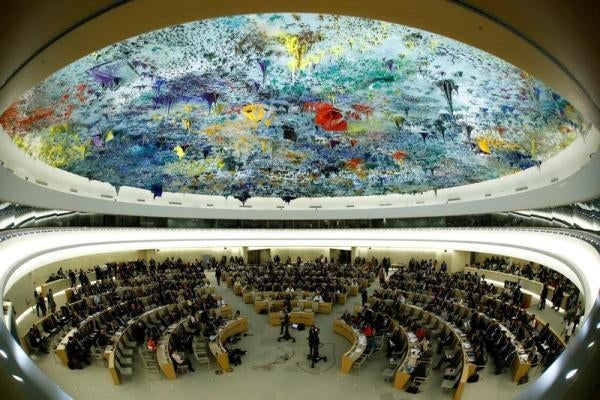The UN Human Rights Council in Geneva ended its 51st session on Friday after a very intense four weeks that brought both ups and downs. Here’s a quick review…
China: Sadly, the Council voted not to debate the UN High Commissioner’s Xinjiang report, which found that Chinese authorities were committing sweeping violations against Uyghurs and other Turkic Muslims, possibly rising to the level of crimes against humanity. As noted in this newsletter last week, many countries were unable to stand up to Beijing’s arm-twisting. Particularly notable was the failure of some Muslim-majority countries to take an interest.
Russia: By contrast, there was a solid win for victims of abuses in Russia, as the Council voted to establish a special rapporteur on the human rights situation there – something we’ve been advocating for some time.
Ethiopia: In other good news, the Council voted to renew the mandate of the International Commission of Human Rights Experts on Ethiopia. As noted in this newsletter previously, this will help keep international focus on atrocities there.
Sri Lanka: In another victory, the Council voted to extend and reinforce the UN High Commissioner for Human Rights’ Sri Lanka Accountability Project, which goes some way to meeting the demands of local civil society groups.
Afghanistan: In partially positive news, the Council adopted a resolution renewing the mandate of the special rapporteur on Afghanistan for one year. Unfortunately, efforts to also establish an accountability mechanism failed.
Venezuela: In a strong outcome, Council members passed a resolution to renew the mandate of the International Fact-Finding Mission on Venezuela for two years.
Burundi: In one more for the win column, the Council decided to extend the mandate of the Special Rapporteur on the human rights situation in Burundi.
Philippines: It was disappointing to see no resolution presented on the Philippines, where, as we noted in this newsletter last week, there’s been no letup in deadly abuses.
Yemen: In other bad news, this Council session also failed to create an independent international monitoring and reporting mandate on Yemen.




